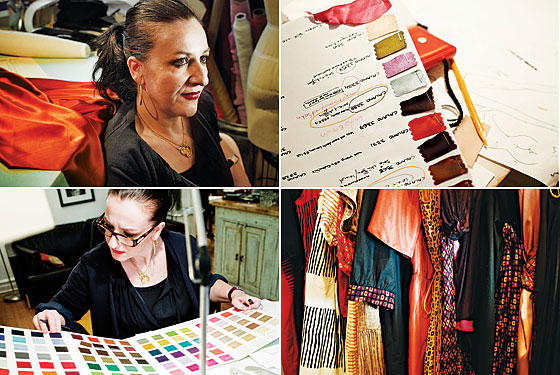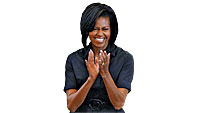
Sophie Théallet is, in many ways, a French designer. She was trained at the Studio Berçot in Paris, then she worked in the ateliers of Jean Paul Gaultier and Azzedine Alaïa. She knows how to sketch a dress, how to drape it and pin it, and how to sew it herself. She designs her own prints using a set of watercolor paints. She’s the opposite of a celebrity or stylist designer; she understands the intricacies of seams and proportion and can cover a button. But when she decided, in 2007, to start her own label, Théallet canvassed her Parisian mentors and kept hearing the same thing: that of all the fashionable cities (London, Paris, Milan …), New York was the best place to start a business.
“I arrived here, and I knew nobody,” she says. “I did not have connections, and I am not somebody who goes out every night. I am more just somebody who works.” And she did, setting up shop in a small apartment in Brooklyn Heights that she shares with her husband, Steven Francoeur, and their 4-year-old son, Leon. The family’s living room has become Théallet’s studio, crammed with rolls of fabric and a sewing machine and a drawing table and a mannequin, and Francoeur manages the business from a desk set up in the hall.

Soon enough, Théallet started to meet people. A parent at her son’s preschool helped her put on a show last year, and the generosity started flowing: A well-connected publicist donated her time, and editors introduced her to retailers who were eager to buy her clothes. “You have this feeling like people in New York really care that you continue your business,” she says. “They encourage you to keep working.” Suddenly she was getting noticed; Michelle Obama began to wear her clothes.
Théallet’s big break occurred this fall, when she won the Vogue/CFDA award for new talent. The six-year-old prize, which comes with $200,000 in cash, a smart Cartier watch, and the mentorship of an industry great, serves as something like a real-life (and enormously more helpful) Project Runway, having helped launch now-successful New York labels like Proenza Schouler, Rogan, and Alexander Wang. Last week, Théallet chose Oscar de la Renta as her mentor and is hoping to work with him to expand into knits. She will be buying a new sewing machine, but she’s not planning on leaving Brooklyn Heights and is happy to continue producing her clothes in the city.
Théallet’s recent success flies in the face of the idea that the fashion industry is cold and exclusive and impossible to invade. Is it easy? Hardly. But no other city works as hard to encourage its talent or reward their potential.